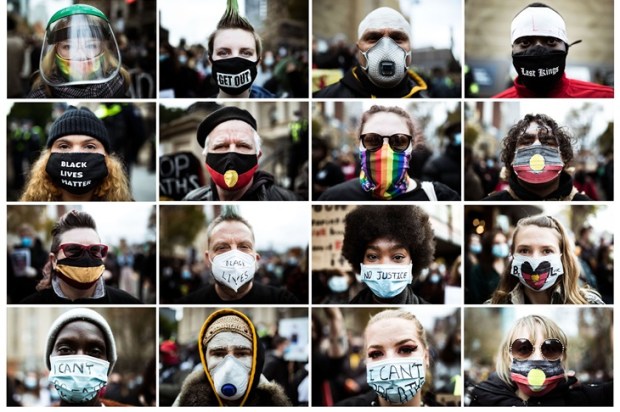‘Sovereignty’ is back in mainstream headlines.
Whilst it is, dare I say – nice – to have a break from the incessant Covid coverage, we must now embrace a post-pandemic dictionary.
Infection Fatality Rate, Rapid Antigen Test (as opposed to PCR Test), Isolation, Lockdown, ‘The Curve’ –all of these and more have populated our news and conversations for the past two years. However, with the states and territories nationwide removing public health emergency restrictions, it is likely that Covid jargon will disappear as well.
So, in putting the virus vernacular out to pasture, what can we expect to replace it with? What key concepts should Australia be brushing up on? It would be foolish to attempt a comprehensive dictionary for 2022 here, but sovereignty is a good starting point and a word that has long been missing from our lives.
The widespread condemnation of Russia can, in large part, be attributed to its disregard for Ukrainian territorial sovereignty. The West are used to national autonomy existing as a given.
Broadly speaking, sovereignty is about the respect one nation shows for other bounded jurisdictions. In this sense, state borders are akin to moats; only if the owners of the castle lower the drawbridge and invite you in, are you welcome to enter. In the absence of an invite, crossing a border is like scaling the battlements and declaring an invasion. You’re unlikely to receive an arrow to the knee (our metaphor ends here!), but backlash from the country in question, and the international community at large, will be chilling.
Respect for territorial sovereignty is what permits global governance and gives countries the confidence to interact. It’s also why organisations like the United Nations and World Trade Organisation are branded as ‘toothless tigers’; signing up is a declaration of good faith, not a binding contract.
The current expectation is that countries will comply with the rules of these organisations of their own accord, which – on important matters – they usually do. We shouldn’t ignore the successes of global cooperation; unprovoked military incursions into other states remains rare compared to historical norms. At the same time, we shouldn’t be naive. The rules-based international order is a legacy of Western liberalism, but so too is the West’s history of meddling in foreign affairs. Russia is far from the first nation to ‘cross the line’ literally or metaphorically, or to ignore international norms and human rights. Afghanistan and Iraq stand as poignant examples of why direct interference, even when it is ‘well-intentioned’, is often unwise.
That is territorial sovereignty, but sovereignty comprises more than just respect for physical borders. Interference in domestic politics is just as much a breach of sovereignty. Pictures of tanks rolling into another jurisdiction make for good news stories, but political sovereignty is far more fragile than our physical borders. In some battles, this is where the war is fought.
One of citizenship’s privileges is the right to participate in the contest of ideas that is national politics. However, the contest of ideas occurs online these days and there are no national borders to protect against ideological tanks. Everyone online, in a sense, has an opinion about the sovereign rights of other nations. No ballot paper required. Only the democracy sausage is still reserved for citizens – a small victory for now!
What do these two kinds of sovereignty mean for the future?
Comparison has been drawn between Russia and China, and their shared expansionist goals. The argument being made is that Taiwan may become the Southern hemisphere’s Ukraine. This is an interesting analogy but also inaccurate: Taiwan is not a sovereign state in the same sense as Ukraine. When Western leaders speak of Taiwan and the PRC, one should notice the care with which words are chosen; distinctions are always made between China and its governments. English- speaking nations are taking advantage of linguistic ambiguity to maintain diplomatic relationships with both Taiwan and mainland China. The PRC does not distinguish between China the country, and their own party. Thus, the West’s adherence to Beijing’s ‘One China’ policy appears to endorse PRC claims over Taiwan. In reality, ‘One China’ acknowledges a single nation that hosts two systems of government.
Ukraine has lost its territory, but its sovereign government remains; as much as that is possible with globalised ideas and online political interference. China is a sovereign landmass, but there is no single sovereign government. What this means is that two very different battles must be fought if the West wishes for democracy to prevail. In Europe, Ukraine must be aided in reclaiming its territorial sovereignty. In Asia, the answer is less simple, but direct interference need not be the answer.
Democracy is founded on the ‘will of the people’, autonomy, and empowerment. To argue for Western governments to establish a single democratic China system is a contradiction, as well as a practical impossibility. No, this is where ideological, online artillery is the best weapon. Respect for territorial sovereignty doesn’t mean impotence, the battle simply moves. Here, we have a chance to fight in the contest of ideas.
Got something to add? Join the discussion and comment below.
Get 10 issues for just $10
Subscribe to The Spectator Australia today for the next 10 magazine issues, plus full online access, for just $10.


























Comments
Don't miss out
Join the conversation with other Spectator Australia readers. Subscribe to leave a comment.
SUBSCRIBEAlready a subscriber? Log in